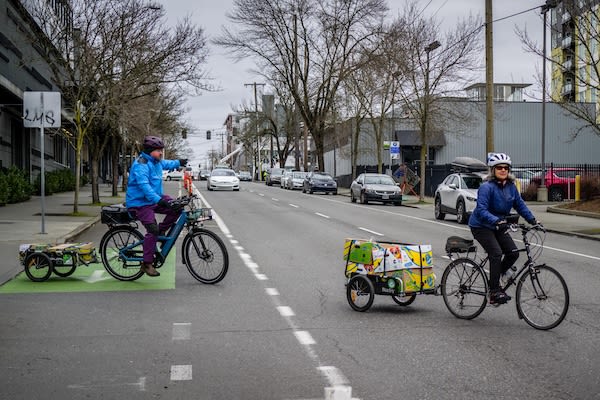In Seattle, bicycling volunteers help rescue food—and the planet

Providence Swedish is addressing sustainability and food insecurity through support of the Cascade Bicycle Club’s innovative Pedaling Relief Project, a food rescue and transport initiative. With some 10,000 members, the nation’s largest statewide bicycling nonprofit offers a host of programs, including group rides, bicycling lessons, community advocacy and more.
Sustainability is among the club’s top priorities, whether in the form of reducing emissions by limiting the number of cars on the road, advocating for safer streets that support and encourage bicycling or addressing food insecurity in local communities.
Launched in 2020, the Pedaling Relief Project is supported by groups of volunteers who ride to local grocery stores to rescue produce and food that would otherwise go to waste and then bike it to food banks. The food is sorted and repackaged, then delivered by bicycle to the homes of clients who are unable to travel to the food banks.
Some volunteers do pickups once a week, while others make several regular pickups per week. During the first year and a half of the pandemic, program volunteers rescued and distributed 420,000 pounds of food. The club currently works with five local food banks and has also served some 18,000 people directly as part of its food insecurity relief efforts.
By bicycling instead of driving, Pedaling Relief has prevented the emission of over 8.6 tons of CO2 into the atmosphere. The Pedaling Relief Project’s efforts are realizing our shared goal of safe and healthy communities—and a healthy planet—for all.



